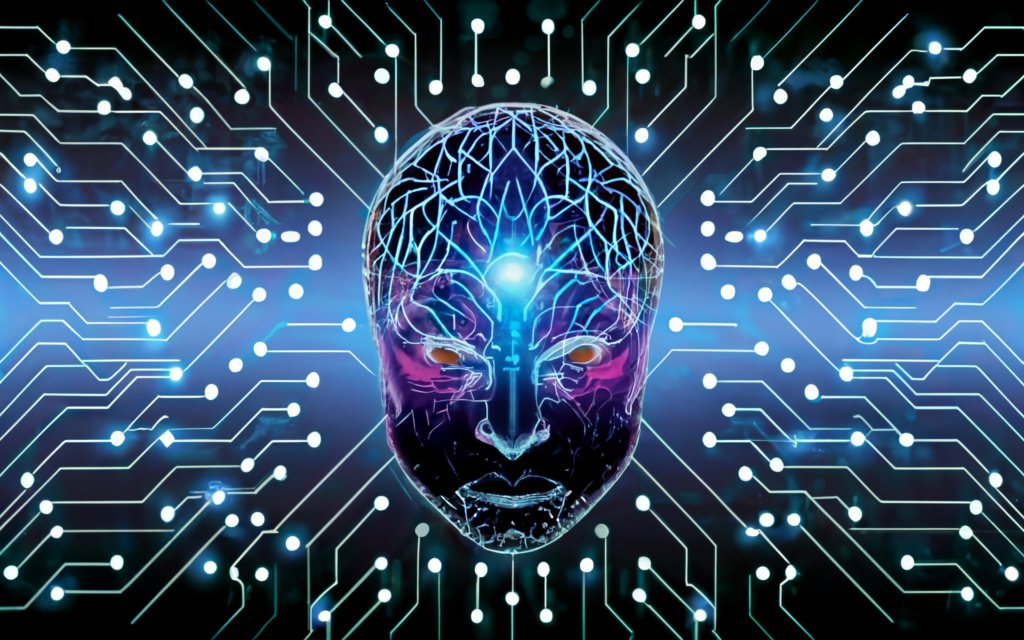Welcome to the dawn of a new era! Artificial Intelligence (AI) is not just a buzzword anymore; it’s a reality shaping the future of India. In this article, we’ll embark on a journey to explore the vast landscape of AI in India, unraveling its potential, challenges, and the transformative impact it holds for our nation.

Understanding Artificial Intelligence
Artificial Intelligence, often abbreviated as AI, refers to the simulation of human intelligence in machines programmed to think and learn like humans. It encompasses various subfields such as machine learning, natural language processing, and robotics. Think of it as teaching computers to mimic human cognitive functions like problem-solving, pattern recognition, and decision-making.
AI Revolution in India
India is experiencing an AI revolution, with the government, industries, and academia joining forces to harness its potential. From startups to established enterprises, everyone is integrating AI into their operations to enhance efficiency, productivity, and innovation.
Applications of AI in India
Education and Skill Development
AI is reshaping the education landscape in India, personalizing learning experiences, and providing access to quality education to remote areas. Adaptive learning platforms powered by AI analyze students’ strengths and weaknesses, offering customized learning paths. Moreover, AI-driven skill development programs are upskilling the workforce for the future job market.
AI in Healthcare
In the healthcare sector, AI is revolutionizing patient care, diagnosis, and treatment. From predictive analytics for disease prevention to precision medicine tailored to individual patients, AI is augmenting medical professionals’ capabilities, leading to improved outcomes and reduced healthcare costs.
Transforming Agriculture
India’s agrarian economy is undergoing a transformation with the integration of AI. Smart farming techniques empowered by AI, such as precision agriculture and crop monitoring systems, optimize resource utilization, increase yield, and mitigate risks, ensuring food security and sustainability.
AI in Governance
Governments across India are leveraging AI to enhance governance and public service delivery. AI-powered systems facilitate data-driven decision-making, improve administrative efficiency, and enable predictive analysis for proactive policy interventions. From smart cities to digital governance platforms, AI is driving inclusive development and citizen engagement.
Challenges and Concerns
While the prospects of AI are promising, there are several challenges and concerns that need to be addressed. These include ethical implications, job displacement due to automation, data privacy and security concerns, and the digital divide exacerbating societal inequalities.
Future Prospects
The future of AI in India is brimming with possibilities. As technology continues to advance, AI will permeate every aspect of our lives, driving innovation, economic growth, and social progress. With the right policies, investments, and ethical frameworks in place, India can emerge as a global leader in AI innovation and adoption.
Conclusion
In conclusion, the future of artificial intelligence in India is bright and transformative. From revolutionizing industries to addressing societal challenges, AI holds the key to unlocking immense potential. Embracing AI responsibly and inclusively is crucial to harnessing its benefits for the collective good of society.
FAQs About AI in India
1. How is AI transforming industries in India?
AI is transforming industries in India by optimizing processes, driving innovation, and unlocking new business opportunities. From manufacturing to healthcare, AI-powered solutions are enhancing efficiency and productivity.
2. Will AI lead to job loss in India?
While AI may automate certain tasks, it also creates new job opportunities in emerging fields like data science, AI ethics, and human-machine collaboration. Reskilling and upskilling initiatives are essential to prepare the workforce for the AI-driven future.
3. Is AI accessible to everyone in India?
Efforts are underway to democratize access to AI technologies in India, including initiatives to promote AI education, research, and entrepreneurship. However, bridging the digital divide and ensuring inclusivity remain ongoing challenges.
4. What are the ethical implications of AI adoption in India?
Ethical considerations such as bias in AI algorithms, data privacy, and algorithmic transparency are crucial in AI adoption. India needs robust regulatory frameworks and ethical guidelines to mitigate these risks and ensure responsible AI deployment.
5. How can India become a global AI powerhouse?
India can become a global AI powerhouse by fostering a conducive ecosystem for research, innovation, and entrepreneurship. This includes investing in AI education and R&D infrastructure, promoting collaboration between academia, industry, and government, and prioritizing ethical AI principles. With concerted efforts, India can lead the way in AI innovation and shape the future of technology on a global scale.

Add a Comment